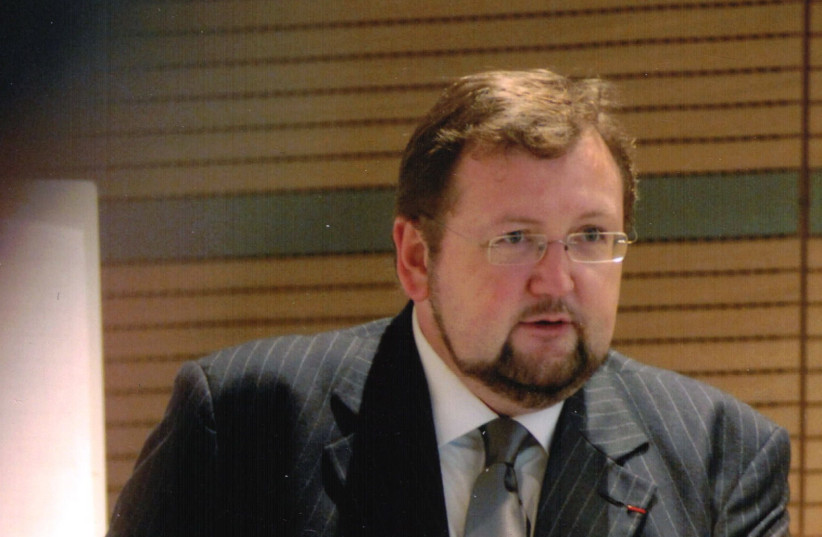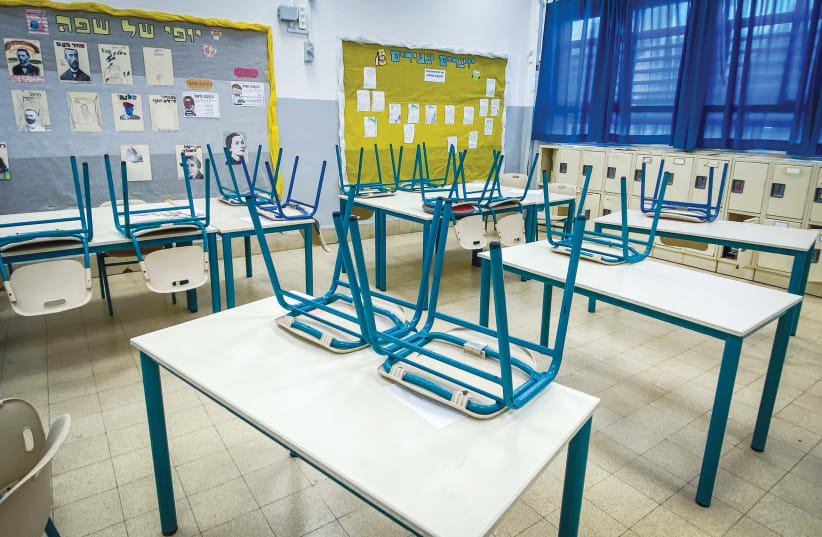A plan to get Germany’s non-Orthodox rabbinical schools back on track after nearly a year of tumult has hit a snag: the country’s main Jewish organization says it can’t fund the group that took control of the schools in January.
The Jewish Community of Berlin had announced in a surprise move that it had paid 25,000 euros to buy out the ownership stake of the schools’ founder and rector Rabbi Walter Homolka, who stepped down from almost all positions amid investigations into whether he abused his power.
The Central Council of Jews in Germany, the country’s main Jewish group, had been working on a plan to overhaul the schools and initially expressed skepticism about the Berlin Jewish community’s purchase. But the Central Council’s president, Josef Schuster, said he had been persuaded to work with the new owners after getting assurance that Homolka would have no role at the revamped schools.
Barriers to the community
Now, the Central Council says its auditors have advised that it cannot legally pass along government funds to the Jewish Community of Berlin. The Central Council announced on Thursday that it would instead create a new foundation to support the Reform Abraham Geiger College and Conservative Zacharias Frankel College, and it could move to reopen the schools with new names. (Both schools are named for prominent 19th-century German rabbis.) The Central Council has supported both schools to the tune of about $530,000 a year.
“The takeover of the rabbinical training centers by the Jewish Community of Berlin was done with the best of intentions,” Schuster said in a statement. “However, it is not possible for the Central Council to support rabbinical training in the present support structure.”


Jewish Community of Berlin President Gideon Joffe attacked the plan as an “abuse of power,” saying that his organization would “not bow to the feudal fantasies of omnipotence harbored by old white men.” Joffe and Schuster have sparred intensely over the future of the two seminaries.
Joffe said the Central Council already had ceased transferring funds to the seminaries, “massively hindering rabbinical education in Germany, which it actually claims to protect.”
In fact, it is usually an entity’s owner — which since January has been Joffe’s group — that would be responsible for securing funding. The three major and longtime funders of the seminaries — the Central Council, the Federal Ministry of the Interior and the Brandenburg Ministry of Science — have all been aligned, declaring together in December their support for an independent liberal rabbinical seminary under a new structure.
The Central Council was in the midst of devising that new structure when Joffe’s group swooped in and purchased a leadership stake in the schools. The council had hired Gerhard Robbers, an expert in religion and law, to develop a new model for the schools, after an initial version of its commissioned investigation reported that Homolka had created a “culture of fear” there. A final report of the investigation by the law firm of Gercke Wollschläger is due out soon.
The council released Robbers’ “roadmap” for the schools on Thursday. He recommended that the Central Council establish a foundation under which two independent seminaries and a cantorial program would operate, under the auspices of the University of Potsdam. A board including the elected president and appointed executive director of the Central Council as well as representatives of both the Progressive and Masorti (Conservative) movements — appointed by themselves — would make fundamental decisions together. In general, the roadmap is designed to ensure stability and quality of education, and to prevent any one person or group from monopolizing the structure, Robbers wrote.
“If bringing in existing institutions is not possible or proves inopportune, institutions could be newly established,” Robbers’ recommendation says. “Through them, existing tasks, staff and students could be taken over. Appropriate names for the institutions should be found in agreement with the stakeholders.”
Schuster said the dramatic changes were warranted by the recent findings against Homolka. The former rector announced this week that he would resign from the leadership of another institution he had created: The Ernst Ludwig Ehrlich Scholarship Foundation for talented Jewish students; he has also sought legal relief against the criticism against him, with some recent, albeit partial, success.
The Central Council aims to “offer students and employees a secure perspective, securing teaching in the long term and restoring lost credibility,” Schuster said. “With the present findings on the abuse of power, discrimination and the prevailing culture of fear at rabbinical training institutions, there can be no ‘business as usual.’ A new beginning is necessary.”
